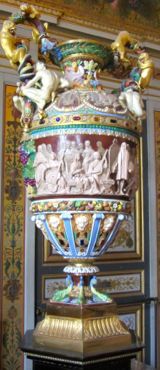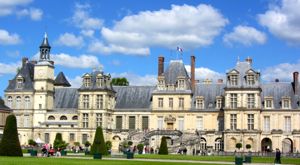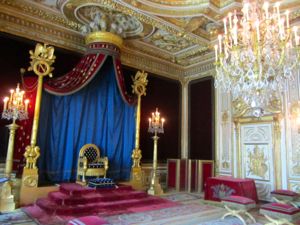 |
Château de Fontainebleau, Paris | |
| Home to royalty for centuries, Fontainebleau makes a great excursion from Paris. | ||
|
|
|
The Château de Fontainebleau, less known—and less visited—than its more famous cousin, the Château de Versailles, has played a long role in French history. It is " the only royal and imperial château to have been continuously inhabited for seven centuries." Fontainebleau was begun in the 12th century, under Louis VII. The large keep is all that remains of this building. Over the centuries, various monarchs left their mark on Fontainbleau, from François I to Henri IV to several of the Louis. Napoléon I did major renovations of Fontainebleau. While he may have enjoyed the Château for a decade, Fontainbleau was also the site of his abdication, on April 5, 1814. Later in the 19th century Louis-Philippe undertook more renovations at Fontainebleau. Napoléon III and Empress Eugénie then came to enjoy Fontainebleau until 1869. With all the royalty investing in the Château and its gardens, a wonderful legacy has been left for visitors today. Visitors today can enjoy Fontainebleau on a day trip from Paris, via public transportation, by car, or as part of a tour. Visiting the Château and gardens is a great way to spend a day. Your Paris Museum Pass includes Fontainebleau, and like many Paris area museums, admission is free on the first Sunday of the month. There are a number of restaurants just across the street from the Cour d'Honneur, where you can enjoy lunch or a cool drink before or after your visit. Château de Fontainebleau
|
|
Above, Château de Fontainebleau, France.
|
By Tom Brosnahan & Jane Fisher | About Us | Disclaimer | Copyright © 2008-2025 by Travel Info Exchange, Inc. | Contact Us



